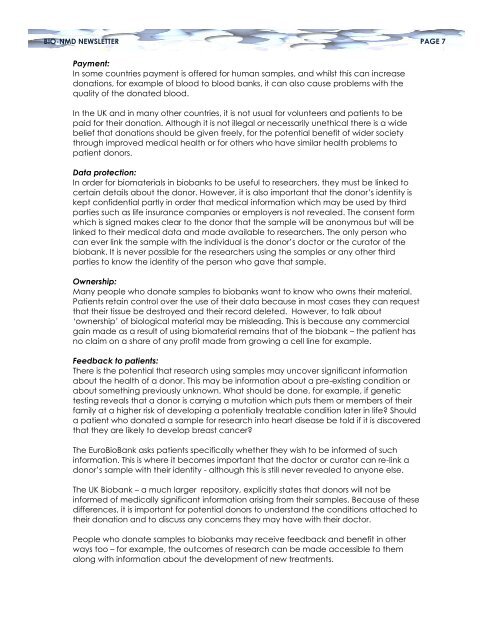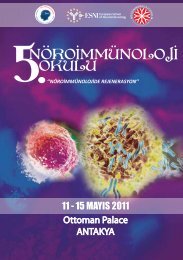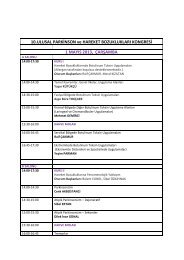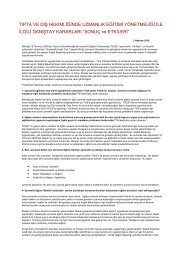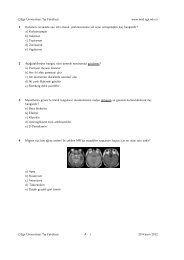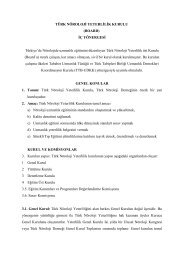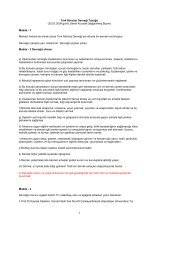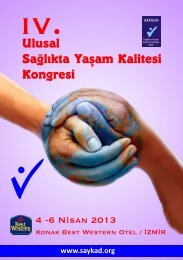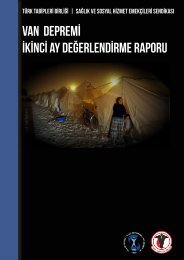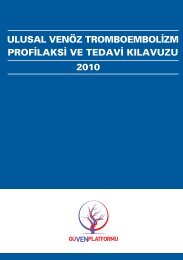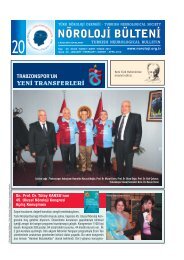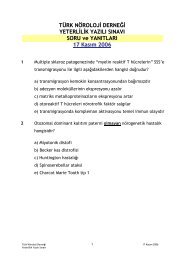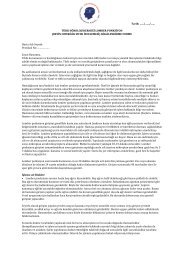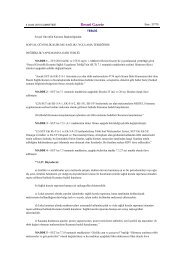BIO-NMD newsletter
BIO-NMD newsletter
BIO-NMD newsletter
You also want an ePaper? Increase the reach of your titles
YUMPU automatically turns print PDFs into web optimized ePapers that Google loves.
<strong>BIO</strong>-<strong>NMD</strong> NEWSLETTERPAGE 7Payment:In some countries payment is offered for human samples, and whilst this can increasedonations, for example of blood to blood banks, it can also cause problems with thequality of the donated blood.In the UK and in many other countries, it is not usual for volunteers and patients to bepaid for their donation. Although it is not illegal or necessarily unethical there is a widebelief that donations should be given freely, for the potential benefit of wider societythrough improved medical health or for others who have similar health problems topatient donors.Data protection:In order for biomaterials in biobanks to be useful to researchers, they must be linked tocertain details about the donor. However, it is also important that the donor’s identity iskept confidential partly in order that medical information which may be used by thirdparties such as life insurance companies or employers is not revealed. The consent formwhich is signed makes clear to the donor that the sample will be anonymous but will belinked to their medical data and made available to researchers. The only person whocan ever link the sample with the individual is the donor’s doctor or the curator of thebiobank. It is never possible for the researchers using the samples or any other thirdparties to know the identity of the person who gave that sample.Ownership:Many people who donate samples to biobanks want to know who owns their material.Patients retain control over the use of their data because in most cases they can requestthat their tissue be destroyed and their record deleted. However, to talk about‘ownership’ of biological material may be misleading. This is because any commercialgain made as a result of using biomaterial remains that of the biobank – the patient hasno claim on a share of any profit made from growing a cell line for example.Feedback to patients:There is the potential that research using samples may uncover significant informationabout the health of a donor. This may be information about a pre-existing condition orabout something previously unknown. What should be done, for example, if genetictesting reveals that a donor is carrying a mutation which puts them or members of theirfamily at a higher risk of developing a potentially treatable condition later in life? Shoulda patient who donated a sample for research into heart disease be told if it is discoveredthat they are likely to develop breast cancer?The EuroBioBank asks patients specifically whether they wish to be informed of suchinformation. This is where it becomes important that the doctor or curator can re-link adonor’s sample with their identity - although this is still never revealed to anyone else.The UK Biobank – a much larger repository, explicitly states that donors will not beinformed of medically significant information arising from their samples. Because of thesedifferences, it is important for potential donors to understand the conditions attached totheir donation and to discuss any concerns they may have with their doctor.People who donate samples to biobanks may receive feedback and benefit in otherways too – for example, the outcomes of research can be made accessible to themalong with information about the development of new treatments.


